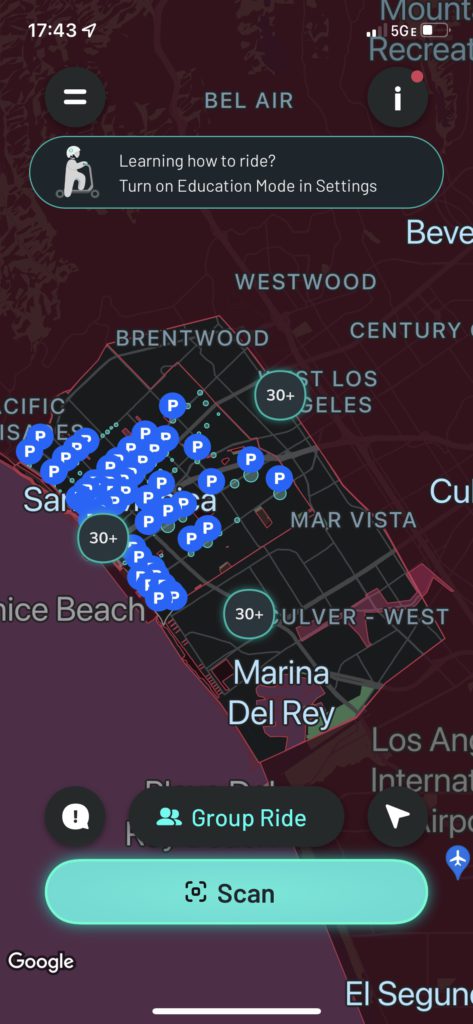Over the last 10 years, bike sharing has become a hot new market for many entrepreneurs and venture capitalists. Micromobility companies like Bird, Bolt Mobility and Lime have popped up all over the world. However, despite many important technological innovations, this industry has not been an easy one to crack. But one company who has been able to make headway and stand out in this saturated market is Veo.
Founded in 2017 in Chicago, Veo became the first company in the micromobility market to become profitable in May of 2020. They did so by providing accessible bike and scooter sharing services in Illinios, California and Alabama, among other states.
Tired of working for corporate America, Edwin Tan, president of VEO and also a former engineer for bicycle manufacturer Trek and Candice Xie, CEO of Veo and a former financial planner for Schneider Electric, started the company in Illinois after seeing the success of the micromobility market in Asia. Xie told us they decided to start off by tackling a small market first, instead of getting wrapped in the “logistical nightmare” of providing a service to an entire city.
“We started with the university market because that market is quicker to move forward in and we could secure exclusive contracts for a long term. Universities are smaller than cities so it’s pretty easy to figure out the operation model at that scale.”
And while other micromobility companies like Lime have suffered during the pandemic, Veo has managed to grow. Xie attributes part of their success to Veo’s willingness to work closely with city officials.
“In 2019, it was the wild west. Every company could come into the city and dump their scooters without notifying the city,” she said. “But we didn’t want to be associated with that, so from day one we’ve been working with every city. We want to make sure these are long term partnerships, and that we also understand the community so we can customize an ideal plan for them.”
Since opening their new headquarters in Santa Monica in March, riders in Los Angeles have been able to ride between Santa Monica and L.A. They’ve been able to take trips north to Will Rogers State Beach, south to Marina Del Rey and east to Mar Vista.
 If you log on to Veo’s app, you’ll see their scooters are now available on the westside of LA.
If you log on to Veo’s app, you’ll see their scooters are now available on the westside of LA.
Still, riders aren’t able to ride all over L.A. The city of L.A. has only granted Veo permits for 500 vehicles. Xie said they’re focusing on expanding that to the places they know their riders want to go.
”We are in the process of working with the city to get a permit to further expand to the broader L.A. area,” Xie said.
She added that she strongly believes Veo’s commitment to long-term economic, as well as ecological, sustainability will propel their future growth. Xie said they continue to strive to earn the trust of the cities they operate in by producing durable, safe, and high quality vehicles based on user feedback.
“Everything is designed in-house and put out on the street and manufactured by us,” Xie said.
As part of their plans for growth, the company is adding a mixed fleet of 400 e-bikes and 100 standing scooters.
Currently Veo is the seventh micromobility operator currently permitted in the city of Los Angeles, joining rivals Bird, Lime, Wheels, LINK (Superpedestrian), Lyft and Spin.
Riders pay $1 to unlock their bike or scooter and $0.33 cents per minute to ride (plus tax and fees). Residents of Santa Monica and Los Angeles who qualify can apply to ride at a reduced rate through Veo Access, where riders pay $5 per month for unlimited 30 minute rides.
Xie added that they’ve made it a point to try and give everybody access to micromobility.
”We could make money with stand-up scooters alone, but that feels wrong to me. Because the purpose of Veo is to set the options up so that everyone can ride,” Xie said. “We really want to invite all the demographics and enable different people to unlock their trips with Veo. We don’t want to limit anyone’s mobility because of their gender or age.”
Xie told me she believes having a female voice be the CEO and having user feedback on their app has helped them reach a wider group of people that other companies may have missed out on.
“Stand up scooters and sit down scooters are the most popular. But among women and people over the age of 35, we do find that the sit-down scooter are particularly more popular.”
And while Xie said Veo is focused on making their services better, several micromobility companies have taken significant losses. In June, Santa Monica-based Bird laid off 23% of its staff. Layoffs were also reported at both Superpedestrian and Voi that month.
But it looks like Veo isn’t looking to downsize their business any time soon.
Xie told me that Veo is doubling down on both the greater L.A. area and California as a whole, recently launching in Berkeley. She added that they also eventually intend to move into Santa Clara and San Jose.
“We always want to engage in long term contracts and financially sustainable programs, so that we can plan for 10 years, 20 years, 30 years down the road,” she said.